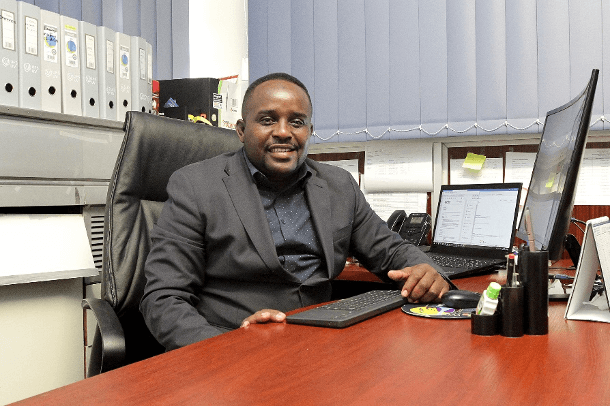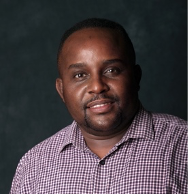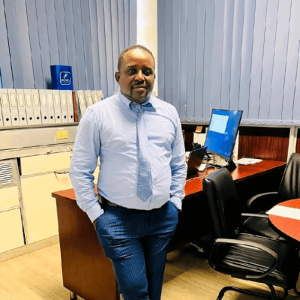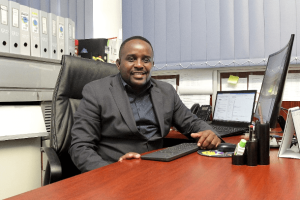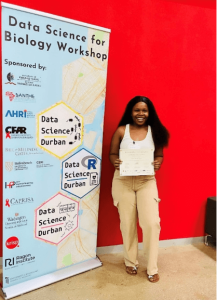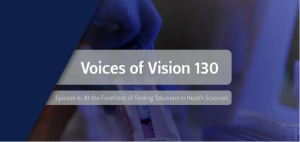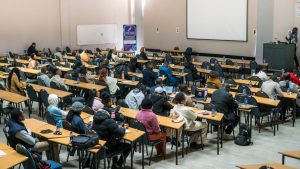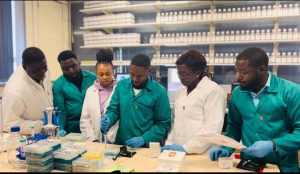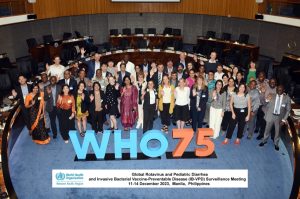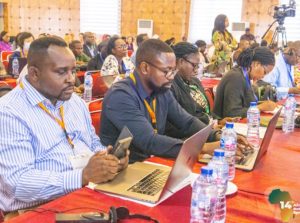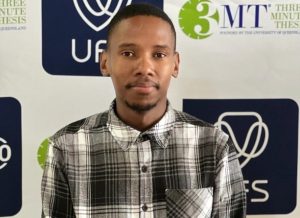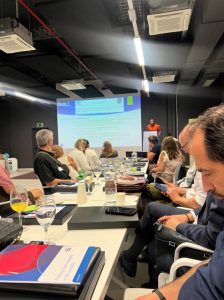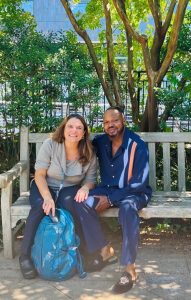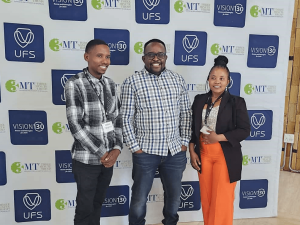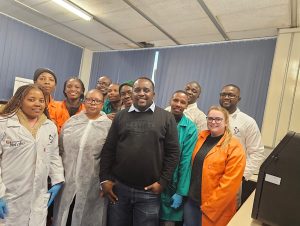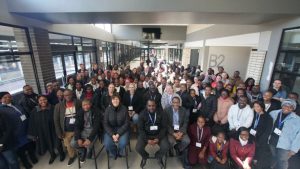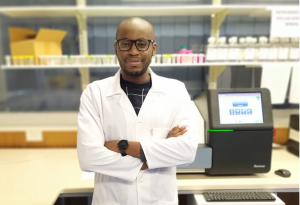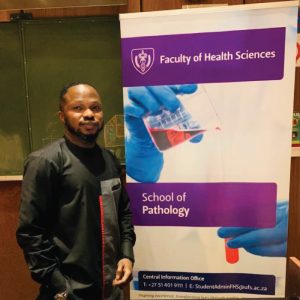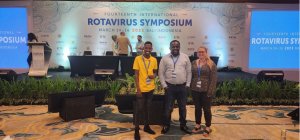Martin Nyaga, full Professor and Head of the University of the Free state Next Generation Sequencing (UFS-NGS) Unit, recently received an NRF-B3 rating from the National Research Foundation (NRF), reflecting his international recognition for high-quality research. This rating marks a significant improvement from his previous NRF-Y2 rating, and Prof. Nyaga expresses pride in this achievement, which motivates him to pursue an NRF-A rating in the future.
Prof. Nyaga’s research focuses on molecular virology, particularly whole genome sequencing and metagenomics of enteric and respiratory viruses. His work has been widely published in top scientific journals, earning significant citations. In addition to his research, he actively participates in community outreach, organizing workshops and seminars to raise awareness about pathogen genomics. He credits his success to substantial support from UFS, including career development programs, and has played a key role in mentoring students, supervising numerous postgraduate theses. Prof. Nyaga is also involved in leadership roles with organizations such as the Africa Centres for Disease Control and Prevention and the WHO Collaborating Centre.
Looking forward, he plans to undertake future research that has impact on the national health systems and to establish himself as an international leader in his niche research area. “I hope to create a vibrant association between research and national development goals and to have a transformative effect on my area of research in a way that can influence policy by addressing national and international challenges within the global knowledge innovation,” says Prof Nyaga.
His continuing research involves the use of next generation sequencing to decipher the viral components of respiratory and enteric milieu and accentuate the critical need to define the complete spectrum of disease-causing viruses. Several previously known and unknown viruses have been detected, including viruses with previously unrecognised tropism. Additionally, whole genome sequencing of important respiratory viruses, such as the respiratory syncytial virus (RSV) (as part of the respiratory niche) and rotavirus (as part of the enteric niche), is being performed simultaneously for different countries, including South Africa, Zambia, Rwanda, Kenya, Cameroon, Mozambique, and Malawi, to enhance the genomic surveillance of specific respiratory and enteric viruses of interest.
The overall goal is to identify novel pathogens responsible for human viral diseases and to create a flexible and highly effective system for the rapid identification and analysis of emerging or re-emerging agents. This will serve four purposes: (i) improve preparedness for outbreaks, (ii) characterise new viruses, (iii) identify additional new pathogenic viruses, and (iv) provide new understanding of the human respiratory and enteric virome. “Viruses that appear to be relevant will be prioritised to elucidate specific targets for rapid diagnostics using panels developed from the antigenic sites of the generated genomes, and immune mechanisms used to develop antiviral interventions such as drugs and vaccines,” explains Prof Nyaga.
Prof Vasu Reddy, Deputy Vice-Chancellor: Research and Internationalisation, commented: “The rating bears testimony to the incredibly important and impactful work that Prof Nyaga is undertaking. The solid international footprint of his publications and their citations also confirm the relevance and currency of his cutting-edge work. The UFS is extremely proud of this signal achievement, and we wish him well with his work in the years ahead.”


